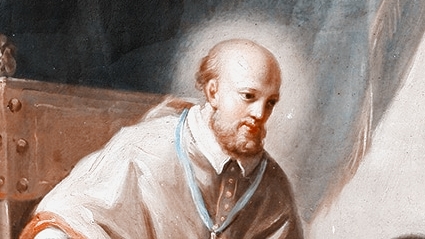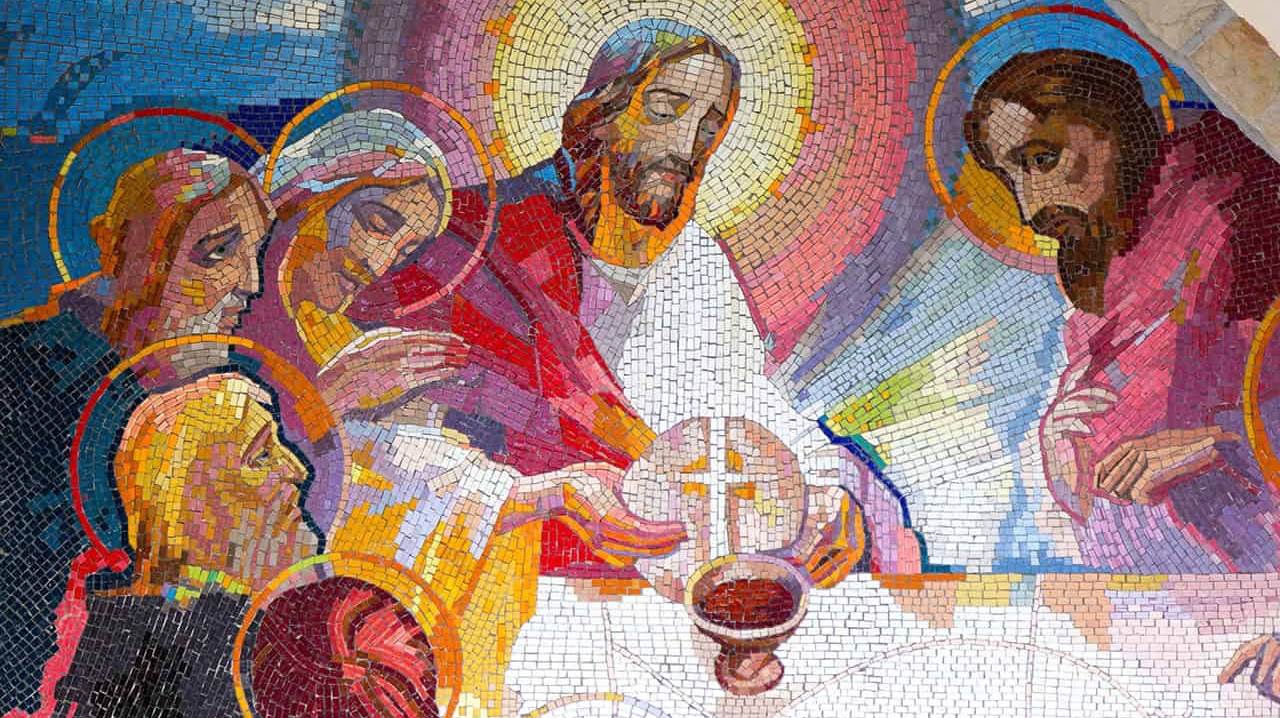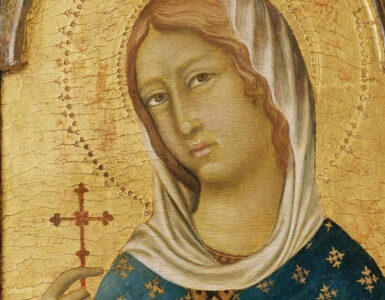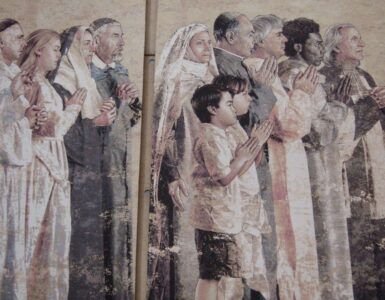During my recent visit to France, I received God’s grace of going deeper and deeper into one of the greatest opponents of Jansenism: St Francis de Sales (1567-1622). Why was this so?
In order to understand the singular contribution of St Francis de Sales to the joy and beauty of living one needs to delve deeper into the Jansenist heresy. Jansenism represented a theological thought which was promulgated by a Dutch bishop in early 17th century France (nowadays Belgium) named Cornelius Jansen (1585-1638). Jansen and his disciples highlighted the fact that Christ did not die for all people, but only those whom God predestined and selected to redeem. This heretical theological school also highlighted that because of humanity’s sinful nature, some of God’s commandments were impossible for even good and just people to live by them. At its core, Jansenism rejected our free will, thus making it impossible that we can ever cooperate with God’s grace to achieve holiness. This heretical movement demanded exceptional penance from the Christian faithful. Thus, it is solely after a long penance and purification that one dares approaching the Sacrament of the Eucharist. Antoine Arnauld, a follower of Jansen, published a book in 1643 which had as its title: Frequent Communion. This highly popular book advocated its readers not to receive communion if they are not perfectly united with God as well as perfectly blameless. In front of such an extremely rigorous approach, people did not receive the Eucharist even during Easter whereas some Jansenist priests did not celebrate mass anymore.
What would living on the Jansenist principles mean? Would it present life as a beautiful mystery to be lived or simply a hopeless pursuit of living blamelessly? Would this bring hope or insert more hopelessness and despair simply because one cannot be perfectly united with God, his Creator and Saviour? Is Jansenism a fruit of the Holy Spirit or a runaway from God’s saving Grace and tool against trust in God, so essential for a human and Christian living?
And here is God’s saving response thanks to St Francis de Sales. As history tells us, the latter, who also founded the Order of the Visitation of Holy Mary, had the grace of receiving St Margaret Mary Alacoque (1647-1690), the receiver of the private revelation of the Sacred Heart of Jesus. It was Jesus himself who revealed himself in His Sacred Heart to St Margaret Mary during the 18 months span, starting from 27 December 1673. In a book which was published in 1691 by Fr John Croiset, stated that the object of the devotion is the immense love of the Son of God. This love is powerfully shown particularly in the Incarnation and Eucharistic mysteries. We are warmly invited to return this love through acts of love, adoration, gratitude as well as reparation. In such an understanding there is no need to emphasize God’s anger towards us, his sinful children, as the heresy of Jansenism would accentuate. Instead what is needed is recognizing and accepting God’s merciful love towards us. By God’s grace and our collaboration, God’s grace is achievable. Hence, let us respond to God’s love while imitating what we lovingly contemplate about in the Sacred Heart of God’s son. Challenging as it may be, there is an interaction between divine grace and our answer in exercising our free will.
Undoubtedly, St Francis de Sales is one of those saints whose writings really help us approach this challenging interaction between divine grace and our free will with wisdom, courage, hope and joy. Here are some of his teachings which can fuel our will to collaborate peacefully, joyfully and generously with divine grace.
Anger can be an obstacle towards that fruitful meeting between divine grace and our will. To counter anger we need virtue, or rather that ability used to do the good joyfully even if facing the most adverse and sinister obstacles. Charity is the virtue thanks to which the power of anger is transformed into one of doing good. In his book the Introduction to the Devout Life, St Francis de Sales writes:
Charity never enters a heart without bringing with it all the other virtues, empowering them and marshalling them as needed, just as a captain does his soldiers. Furthermore, for St Francis de Sales charity produces virtuous acts in every season. Within the same book he tells us: The just person is like a tree planted near running water, which bears fruit in its season. So too when charity waters one’s soul, it produces virtuous works there, but each in its season.
St Francis was wise to allow the understanding and prudence that some kind of virtue cannot necessarily be practiced at all times. He wisely counsels against this great danger for our spiritual growth as well as for those of others when he writes: Frequently the great fault of those undertaking the practice of a particular virtue is to insist stubbornly upon its practice in all circumstances (In III 1).
In his practical teaching, St Francis de Sales greatly emphasized the effectiveness of virtues, especially those who are related to our duties in life. These virtues, because they are not fake, stand to remain forever. He writes: Concerning those virtues pertaining to our duties in life, preference must be given to those which are most effective, not those which may be the most showy (In III 1). The practicality of St Francis de Sales is seen in his conception that certain kinds of virtues are to be practiced because of their usefulness in life such, gentleness, temperance, honesty and humility. He writes: Some virtues are so universally useful that we ought not only to practice them for their own sake but particularly for their usefulness in the practice of all the others. For instance, we seldom have the opportunity to practice fortitude, great generosity or greatness of soul. In the other hand, some virtues such as gentleness, temperance, honesty and humility are the sort which should characterize all of our actions (In III 1).
All of us experience enslavement or addiction to a particular sin. St Francis de Sales gives us the wisdom of practicing more often its contrary virtue. It is such a virtue which attracts and channels all other virtues in our lives. He writes: Let us add this. When we become aware of the assault of some particular vice, let us practice as much as possible its contrary virtue and engage all the other virtues in this effort (In III 1).
These are some examples from the vast and voluminous works of this great saint. However, they portray that golden practical and positive approach taken by St Francis de Sales to life which is not simply positive but also transformative. He looks at our humanity as an active collaborator with God’s grace. Such an approach is badly needed in today’s world where trust in humanity’s capability of working with God has been highlighted and deleted from the spectrum of our daily life. Yes, St Francis de Sales’ understanding of God’s grace, humanity and their relationship does give a charming taste of the mystery of our human life.
A Prayer
O Blessed Francis, who in your life did excel in all virtues, especially in your love of God and of your neighbor, I earnestly ask you to take me under your immediate protection, to obtain from God my perfect conversion, and that of all sinners.
Teach me, O Father, to fix my eyes on heaven, that I may generously trample under foot every obstacle that presents itself in my way, and attain that degree of glory which you in your mercy hold out to me.
Obtain also the favor for which I now pray: (mention your request here).
Assist us O Lord, we beseech you, through the merits of St. Francis de Sales that, what our endeavors cannot obtain may be given to us by his intercession.
O God, who for the salvation of souls, did will that St. Francis de Sales should become all things to all men and women, mercifully grant that we, helped by the gentleness of his charity, guided by his teachings, and sharing in his merits, may obtain eternal happiness. This we ask through Christ our Lord.
Amen.





























